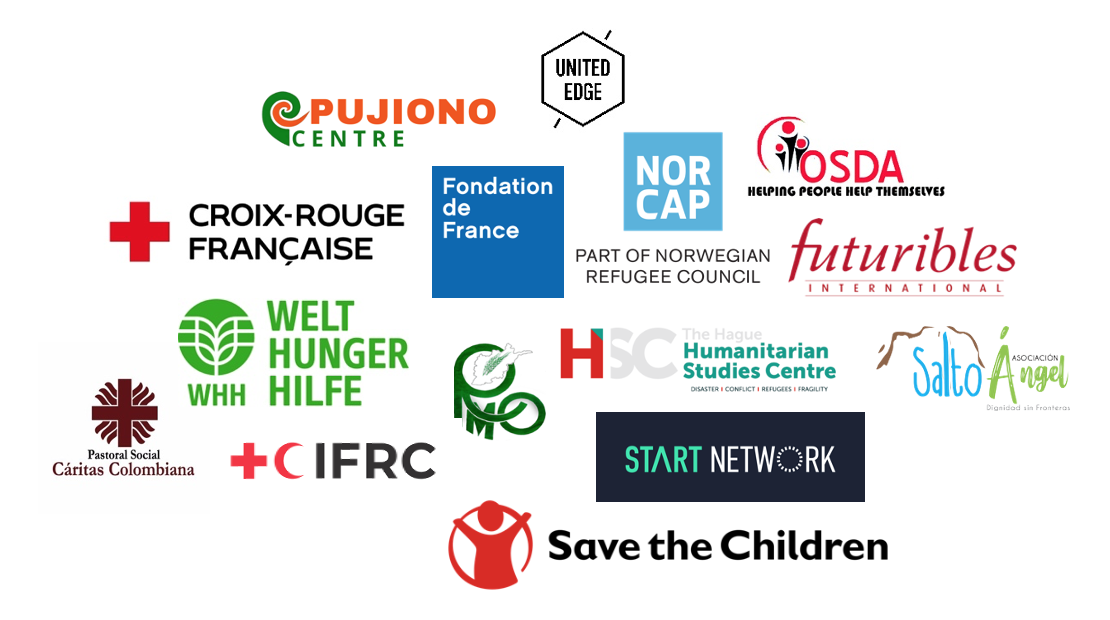Phase 1 — Exploration (2024–2025)
Map 25 drivers and critical uncertainties; co-create 4 futures and a typology of crises with 877 contributors.
Future of Aid 2040
Overview & Vision
International aid is increasingly contested, under-funded, and politicised. At the same time, solidarity, innovation, and local leadership continue to thrive on the ground. Future of Aid 2040 brings these realities together to co-create a shared outlook for the aid system to 2040 and help organisations act now. This report offers four contrasting scenarios and a typology of crises to test strategies, prioritise actions, and trace pathways for transformation under local leadership.
Looking for the analytical detail? Explore the Scenarios & Crisis Typology →
In 2017, IARAN’s Future of Aid: INGO in 2030 report became a widely used reference for strategic planning across the aid sector. Yet, the rapid transformation of global dynamics has since demanded renewed foresight and leadership. In response, IARAN has joined forces with the Centre for Humanitarian Leadership (CHL) and a broad network of partners to revisit and expand the outlook to 2040, placing greater emphasis on practical transformation and leadership for systemic change.
Future of Aid 2040: Pathways to Transformation is an evidence-based, decision-ready set of futures for aid, shaped by people affected by crises and aid practitioners:
Built through an inclusive foresight process, the project connects research, lived experience, and strategic analysis to explore how the aid system might evolve by 2040. It identifies the capacities and transformations required for aid actors to remain effective, legitimate, and locally anchored in a rapidly changing world.
The process unfolds in three complementary phases: mapping the forces shaping the next decades, testing how organisations can adapt, and strengthening collective capacities for long-term transformation.
Map 25 drivers and critical uncertainties; co-create 4 futures and a typology of crises with 877 contributors.
Work with organisations to stress-test strategies and co-design transformation pathways, centred on local leadership through regional labs.
Build momentum through foresight cohorts and peer-learning to sustain locally-led change across the aid ecosystem.
The sector faces mounting pressures: from climate shocks and conflict to shrinking resources. Future of Aid 2040 moves beyond analysis toward practical transformation: using scenarios and a crisis typology to stress-test value propositions and current strategies and co-design future-fit pathways with local actors.
Join Phase 2: Pathways to Transformation →
Puji Pujiono frames Future of Aid 2040 as a milestone for civil society across Africa, Asia, Latin America, and the Pacific, co-leading the re-imagining of the aid system and moving from observation to co-creation in the spirit of gotong royong*.
He invites viewers to anchor transformation in locally led leadership and shared responsibility, and to use this Outlook as a starting point for collective action.
*Gotong royong: Indonesian ethos of communal mutual aid and collective responsibility.
“...For too long, the aid system has been built on shifting ground by outsiders, leaving those who must live within its walls out of the process. ...it is the first time that civil society from the Global South has been involved in reimagining the very foundations of ‘aid’—not just to observe the changes, but to contribute to the gotong royong* spirit.”
Future of Aid 2040 is supported by an extraordinary coalition of humanitarian, academic, and philanthropic partners.

The initiative is guided by a Steering Committee [Asociación Salto Ángel, Croix Rouge Française, Fondation de France, Futuribles International, International Federation of the Red Cross and Red Crescent (IFRC), NORCAP, Organisation for Sustainable Development Africa (OSDA), Pastoral Social Colombiana – Caritas, Pujiono Centre, Rädda Barnen, Rural Movement Organisation (RMO), Save the Children Italia, Start Network, The Hague Humanitarian Studies Centre, United Edge, and Welthungerhilfe (WHH)] and an Academic Panel [Sohail Inayatullah, Philippe Ryfman, Alice Obrecht, Karla Paniagua, Nazanin Zadeh-Cummings, Ajoy Datta, Guillermo Gándara, Alimi Salifou, Sheila Castillo, François Bourse, Mahmoud Ramadan, and others] whose contributions ensure methodological rigour and ethical integrity.
Together, these partners make Future of Aid 2040 a truly global effort to re-imagine and transform the aid system for the decades ahead. Read our Ethical Compliance Policy →